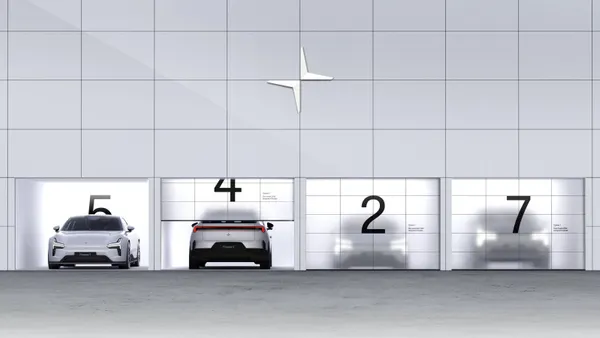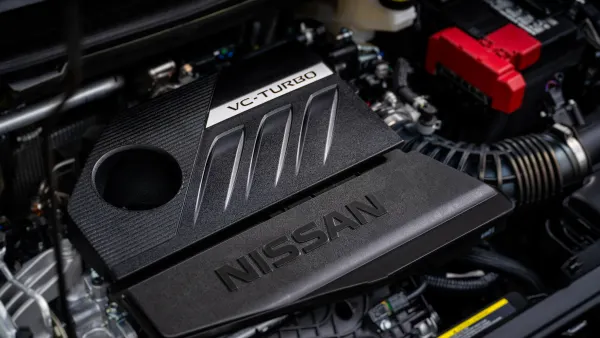Editor's note: This story is part of the WardsAuto digital archive, which may include content that was first published in print, or in different web layouts.
Ford Motor Co. and General Motors Co. dealers express little surprise their brands lead the industry in customer satisfaction for the first time ever, according to an annual report from the University of Michigan.
However, the overall industry underperformed in the study and the lackluster economy puts the Detroit Three’s turnaround at risk, says Claes Fornell, professor of Business Administration at U. of M’s Stephen M. Ross School of Business and author of the American Customer Satisfaction Index.
The overall ACSI score is 75.9, compared with 76.1 a year ago. Scores for Ford, GM and Chrysler Group LLC witnessed the smallest decline, while Japanese and Korean producers fell the most and gave Detroit its first lead in the study since 2000. As a group, European auto makers remain ahead of the rest of the industry.
“We might be making the best car in the world right now,” claims Al Frisch, general partner at Highland Ford Lincoln-Mercury outside Chicago. “But people are just catching up to that fact.”
Frisch says warranty work is almost non-existent and he expects customer satisfaction to remain steady even after Ford shuts down Mercury. Production of the brand’s vehicles is set to end in fourth quarter.
Fornell remembers when Ford and GM were “clustered at the bottom” of the industry. “It was not long ago,” he says.
“Although very few car makers improved this year, the domestic ones have either held steady or lost less in customer satisfaction compared to international competition,” Fornell adds.
“In this sense, the near future looks good for Ford and General Motors. Satisfied customers tend to do more repeat business, generate good word-of-mouth and don’t require greater price incentives to come back.”
Toyota Motor Corp.’s Lexus brand, a top performer in previous years, suffered a 4.5% drop in the index, a decline attributed to the auto maker’s quality woes.
“The Toyota recalls were more visible, affecting millions of Toyota-brand vehicles, but the Lexus recalls impacted a greater proportion of Lexus owners, sweeping across nearly the entire Lexus lineup for problems ranging from fuel leaks and engine stalls to rollover risks,” the report says.
Dealers contacted by Ward’s either dismissed the index or cried foul. A sales rep for one California-based Toyota location laughs off the results, claiming his store sold 60 vehicles last weekend. “More the week before,” he adds, requesting anonymity.
A California Lexus dealer claims the recalls – Toyota is on pace to lead the U.S. market for a second consecutive year – are “a government plot to make us look bad.”
Customer dissatisfaction in previous years over items such as quality, fuel economy and residual values, led to poor scores for the Detroit Three in numerous industry studies. As such, Ford, GM and Chrysler have watched their Asian rivals claim increased market share while Detroit auto makers frantically kept pace using deep discounts.
The record recession exasperated their situation and contributed to bankruptcies at GM’s predecessor, General Motors Corp. and Chrysler LLC.
But as the appeal of Ford and GM products gradually has improved, so have their fortunes. So far this year, Ford has posted $4.7 billion in quarterly profits, while GM has earned nearly $2.2 billion in the first six months.
Detroit Three U.S. market share also shows positive signs, rising to 45.6% through July from 45.1% in like-2009, according to Ward’s data. The share of Asian auto makers fell over the same period to 46.9% from 47.5%.
Louis Alfaro, sales manager at Cerritos Buick-GMC in Los Angeles, says Buick’s performance in the study reflects an improved sales strategy and sexier product.
“We’re trying to listen to our customers better,” he says. “That’s who pays us. And Buick has restyled its vehicles. There’s more awareness, and GM is putting some good programs out.”
Buick’s new look, which focuses on unpretentious luxury, started with the Enclave large cross/utility vehicle two years ago and continues this year with all-new LaCrosse and Regal sedans.
GM also has signed up hundreds of Buick dealers to update their stores for the new product and is asking sales people to greet customer more quickly and act more courteously and professionally. Shrunken by four brands after its bankruptcy, GM says it is pumping more marketing dollars into surviving divisions such as Buick.
John McEleney, former chairman of the National Automobile Dealers Assn. and owner of McEleney Autocenter Inc. in Clinton, IA, says the downturn of 2008 and 2009 left his staff more appreciative of their jobs and more focused on pleasing customers.
McEleney, who operates Chevrolet, Buick and GMC franchises, also points to better product from GM and technological advances allowing his staff to learn sooner about problems – big or small – and fix them faster.
“We don’t see any of the old squeaks, rattles and water leaks that were so difficult to fix before,” he says. “Today’s technology helps us address a problem more quickly. We can find out in time to nip it in the bud.”
Chrysler, which continued to struggle in the U. of M. study with its Dodge and Jeep brands scoring at the bottom, has begun showing operating profits after its predecessor’s bankruptcy, but no net income.
“Although the near future looks promising for General Motors and Ford, at least in a competitive sense, the near term for the economy does not look bright,” Fornell adds, citing a lack of new jobs, jumpy financial markets and weak consumer spending.
“Even though ACSI is at a high level, the trend is not upward,” he notes. “Increasing customer satisfaction, rising disposable income and greater consumer confidence would probably be necessary to bring about more spending” and spur economic growth.
Among the brands seeing surprisingly poor performances were Volkswagen, which boasted the biggest gain in the 2009 index, and hard-charging Hyundai, which has seen its sales and market share rise steadily on the strength of critical acclaim for its vehicles.
Volkswagen’s score fell 5.8%, the industry’s largest decline, while Hyundai slipped 3.5%. However, the Korean brand also has seen the largest historical climb, 20.5%, since U. of M. introduced the index in 1994.
– with Eric Mayne









